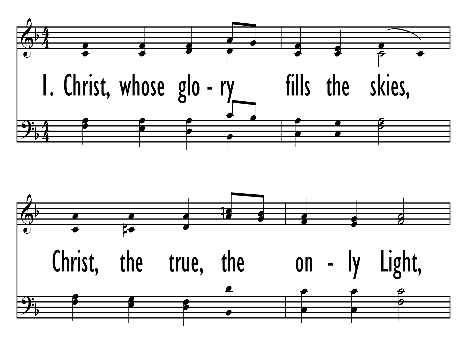852
Faith Begins by Letting Go
Copyright Information
- Text Copyright
- Hymn text © 1996 Hope Publishing Company
· Prayer text - Public Domain
- Tune Copyright
- Public Domain
- Reprint/Projection Information
- Words: Permitted with a license from CCLI.com or from OneLicense.net. If you do not own one of these licenses, please contact the copyright holder for permission.
- Music: The Music is in the Public Domain; you do not need permission to project or reprint the Music.
Full Text
Scripture References
Confessions and Statements of Faith References
Further Reflections on Confessions and Statements of Faith References
God’s grace grants our baptism, and gives us our identity and our calling; however, it is up to us, with a renewed spirit, to respond to his call. We understand that just as “God reminds and assures us of our union with Christ in covenant love,” he also is “expecting our love and trust in return” (Our World Belong to God, paragraph 37).
“We hear the Spirit’s call to love one another…to accept one another and to share at every level…and so fulfill the love of Christ” (Song of Hope, stanza 12). As washed and sanctified people, God’s children are called to “more and more [we] become dead to sin and live holy and blameless lives,” (Heidelberg Catechism, Lord’s Day 26, Question and Answer 70) and this means “the dying away of the old-self, and the rising-to-life of the new” (Heidelberg Catechism, Lord’s Day 33, Question and Answer 88). And so, as part of our baptism, God’s children are called to offer their lives to Christ.


 My Starred Hymns
My Starred Hymns





